Browse Exhibits (20 total)
Japan: Changing Years
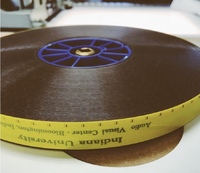
10 episodes, 1961, University of Michigan
From WNET:
"In 1941 Japan was our enemy. By 1951 she had become a staunch ally. Between 1861 and 1961 she made the leap from a Middle Ages culture to a modern one – a transformation that took most European countries four centuries to accomplish. Neither change occurred without tremendous political and social upheavals and enormous tensions and conflicts between the old and the new. In Japan: The Changing Years, these major changes and the resulting tensions are examined by experts who combine academic stature with first-hand knowledge of the country and the conditions they discuss. Films are used extensively to illustrate the points under consideration. These include historic footage shot in 1906 as well as a considerable amount of captured World War II film obtained from the U.S. Army or from the National Archives. Through the cooperation of the Japan Society, Inc., of New York (which shared the cost of producing the series with NETRC) antique prints and paintings and nineteen century photographs were obtained for use. Other still photographs were taken from the book We Japanese, published b Heibonsha of Tokyo. Much of the music was taken from Japanese radio broadcast tapes cleared for use by the Japan Society."
Alaska: The New Frontier
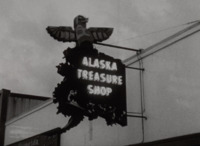
6 programs, 1961, KCTA-TV
From WNET:
"Alaska became the forty-ninth state in 1958; ninety-one years after Secretary of State William H. Seward negotiated the purchase of the territory from the Russians. In many ways it has changed radically since 1867, and since 1958; in others, it remains as it was centuries ago. To explore the many faces and facets of the largest and second newest state, KCTA-TV of St. Paul, Minnesota, sent a film crew to Alaska to prepare this series. They and their cameras traveled from modern Anchorage to Point Hope, one of the oldest Eskimo villages in the state; they visited abandoned gold mines, Armey missile sites, the governor’s office, the new settlements of homesteaders, the factories and the farms that combine to make Alaska a state of excitement and vigorous activity. The result is a series that portrays the state with the immediacy that can be achieved only by a blending of fine visual material and informed commentary."
Red Myth

13 episodes, 1961, KQED (San Francisco)
From WNET:
"Thirteen half-hour programs from KQED in San Francisco describe the history of Communism, from Marx to Khrushchev, and explore some of the major fallacies in this system of thought. Each program contains commentary by noted historians and scholars, film clips of some of the historical events described, and re-enactments of other important episodes in the rise of Communism. Based on documents in the Hoover Institution of War, Revolution and Peace at Stanford University, the dramatic scenes are all adapted from the speeches and writings of the significant figures of the period – Marx, Lenin, Trotsky, Stalin and many others. The settings, costumes and makeup for the actors were carefully designed to reproduce with the utmost fidelity the figures and locations of the scenes they recreate, and were based on contemporary photographs and portraits in the archives of the Hoover Institution."
Sing Hi, Sing Lo
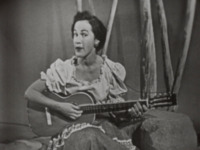
104 episodes, 1958-1959, KQED (San Francisco)
From WNET:
"'Sing Hi – Sing Lo' presents for youngsters the folklore of America through folk dances and folk song. Each program concentrates on one subject; some of the programs include appropriate film clips to better illustrate the material. The folk songs (sing by Bash Kennett who accompanies herself on her guitar) are tied in with the narration; while many of the songs are familiar to the children of America, some of them are lesser known and are truly descriptive of times past. A group of young dancers performs some of the songs. Through “Sing Hi – Sing Lo,” children will learn about people, events and customs which are a part of American history. They will better know their own country and understand the purposes, traditions and activities of their land. The series was produced by KQED, San Francisco, with Kay Rawlings as producer."
Before there was a U.S.A.
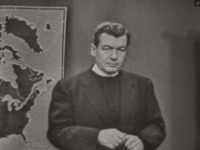
12 episodes, 1955, KETC (St. Louis)
From WNET:
"'Before there was a USA' is the history of Colonial North America. Reverend John Francis Bannon, SJ, Director of the Department of History at St. Louis University, is instructor for the course. Father Bannon, who has developed and enthusiastic response to this program in St. Louis, lists as main objectives of the series the following:
- To tell the story of Colonial North America so that viewers have a better understanding and a deeper appreciation of a period in American History which is intensely interesting and important.
- To show that human nature and human motives are basically the same in every period in history.
- To point out some of the contributions made to America by some of the nations in Europe."
Biblical masterpieces
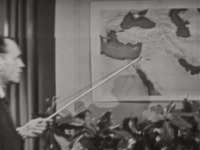
13 episodes, 1961, WUNC (Chapel Hill)
From WNET:
"From WUNC in Chapel Hill, North Carolina, comes a series of programs that explore the literature and history of the Bible. Intended for an adult audience, the programs examine both the well-known and the less familiar stories and personages of the Bible in the light of new work in archaeology, science and higher criticism. The orientation is non-sectarian and requires only some interest in the Judeo-Christian heritage of the Western world. On occasion, photographs, documents, and drawings are used to illustrate the lecture."
The face of Sweden
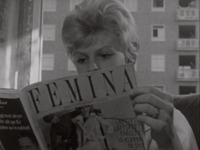
8 episodes, 1963, Swedish Institute for Cultural Relations and the Swedish Broadcasting Corporation for NET
From WNET:
"The face of Sweden illuminates the life and culture of Sweden. Each visual essay stands independently as a full consideration of a significant part of Swedish life, and each provides a key to the understanding of this small country and her people. The format for the series consists of voice over film, with occasional brief interviews. The content revolves about the central theme -- Sweden, a country where change is evolutionary and where moderation is characteristic. The series covers Swedish social politics, foreign policy, law, history, industry, culture and art. Among the distinguished persons who appear in the series are actress Ingrid Thulin and motion picture producer-director Ingmar Bergman (both in program6).
The series is admittedly a self-portrait. Its thesis as expressed by those involved in its production is summarized in the following four paragraphs.
Like the United States, Sweden has achieved a high standard of living while maintaining her concern for the preservation of democratic freedom and the dignity of the individual. In addition to material benefits, the population enjoys a remarkable degree of individual security. Poverty, unemployment and illiteracy are virtually non-existent.
Yet there are aspects of Swedish life and government that, on the surface, appear contradictory and have given rise to widely held misconceptions. It is commonly believed, for instance, that the high standard of living and the alleviation of social problems have been achieved through socialism and are therefore illusory benefits outweighed by a loss of individual freedom. Critics have attempted to prove that the country seethes with hidden social ills - a high suicide rate, mental illness, alcoholism, and illegitimacy.
The true picture is quite a different one. Sweden is ruled by a king, but her government is a constitutional monarchy. The Social Democrats have been the majority party of four decades, but they cannot operate without the support of coalitions in the minority parties. Furthermore, the country is a capitalistic democracy in which only three percent of the national industry is government controlled. That three percent is made up of primarily railroads, hydroelectric power facilities, and other public utilities that, in such a small country, do not offer reasonable returns to the private investor.
This series then explains from the Swedish point of view, the structure of the country’s society."
The modern USA
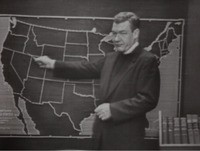
12 episodes, 1955, KETC (St. Louis)
From WNET:
"'The Modern USA' concludes the series by tracing the development of the nation from the Civil War period down to the present. This series follows 'The Young USA'."
Music and the Renaissance
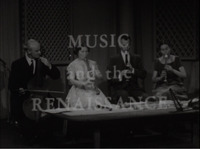
10 episodes, 1958, WQED (Pittsburgh)
From WNET:
"'Music and the Renaissance' introduces viewers to the effect life in the Renaissance period had on the musical compositions of that period, with particular emphasis on the court, church, art and literature of the time. Colin Sterne, assistant professor of Music History and Literature at the University of Pittsburgh, present the music of the Renaissance period played on authentic instruments used during that period (recorder, viola da gamba, lute, tenor viol, virginals, etc.). The performing musicians are members of the Saturday Consort. Italy, Germany and the Netherlands are the countries on which the series concentrates. The series was produced by WQED, Pittsburgh, with Colin Sterne as producer."
The Latin Americas
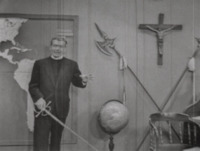
15 episodes, 1957, KETC (St. Louis)
From WNET:
"These programs, produced by KETC, St. Louis, seek to explain the background of the colonial experience of the areas which in the early nineteenth century became the Latin American nations. Attention is given to the conquistadors, the world from which they came, their exploits of conquest and exploration in the Americas, the colonies and societies which they established, and the movements by which the several Spanish and Portuguese provinces achieved their independence. The series was coordinated by William Lesko, produced by David Lewis, and directed by Don Salper."

